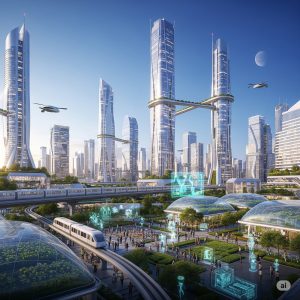
In this episode, we want to begin to wrap things up and consider the “utopian” part of the “Techno-utopian” vision. What is utopia? Should we strive for an earthly utopia? And if not, as we’ll argue, what should we seek and how should we live? To begin, what, again, is the choosing-controlling posture that informs and shapes the techno-utopian vision of reality?
We return to the work of philosopher David McPherson and his excellent book The Virtue of Limits.[1] In his book, McPherson explains the choosing-controlling posture, and how it has led to the techno-utopian vision of reality as follows:
We should not be passive to nature, but rather we should seek to master it through science and technology and direct it, as far as possible, toward the fulfillment of our desires.[2]
They’ll never be at a place where they can say, “enough is enough, I’ve found happiness.” As a result, modern man is not just disenchanted but discontented too.
Let’s talk about the “utopia” piece of this vision. How does that fit into this discussion?
Given the Promethean ideal and its underlying desire to live without limits, it is natural to think we can achieve some kind of perfect or utopian existence on earth. We’ll eventually master nature and ourselves (and some of the movements and ideas we’ve talked about such as the singularity movement attempt to explain how this mastery will take place).
We might ask: what is utopianism exactly, beyond just seeking some kind of perfect existence? It is significant, as McPherson notes that the word “utopia” is formed from the Greek words ou (“not”) and topos (“place”) and thus literally means “no place.”[3] That is, utopia exists nowhere, except in the imagination of those seek it.
If utopianism is not the answer to man’s problem, what is? How should we live in this world and what should we aim for?
McPherson puts it this way: “Rather than imagining some ideal, yet unrealizable world by which we critique the actual world, we do better to focus on becoming better people ourselves.”[4]
How can we become better people? Here are four things we can all do right now:
- First, as already noted, there is repentance.
- Second, acceptance.
- Third, appreciation.
- Finally, living.
[1] David McPherson, The Virtues of Limits (Oxford: Oxford University Press, 2022).
[2] McPherson, The Virtues of Limits, 6–7.
[3] McPherson, The Virtues of Limits, 110.
[4] McPherson, The Virtues of Limits, 119.





